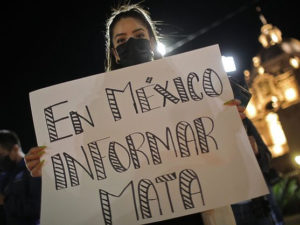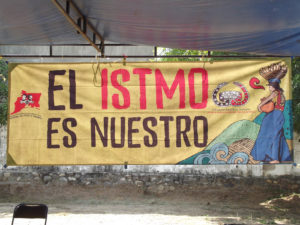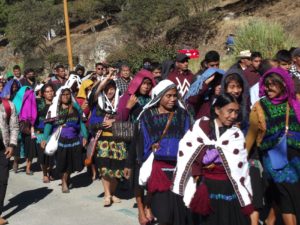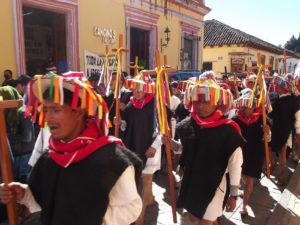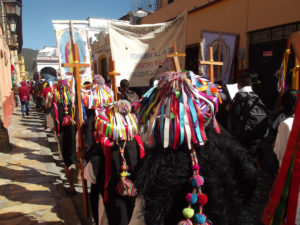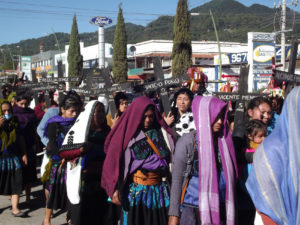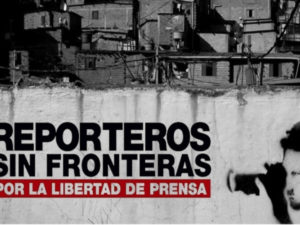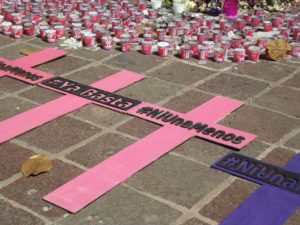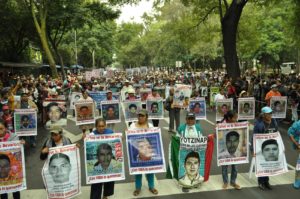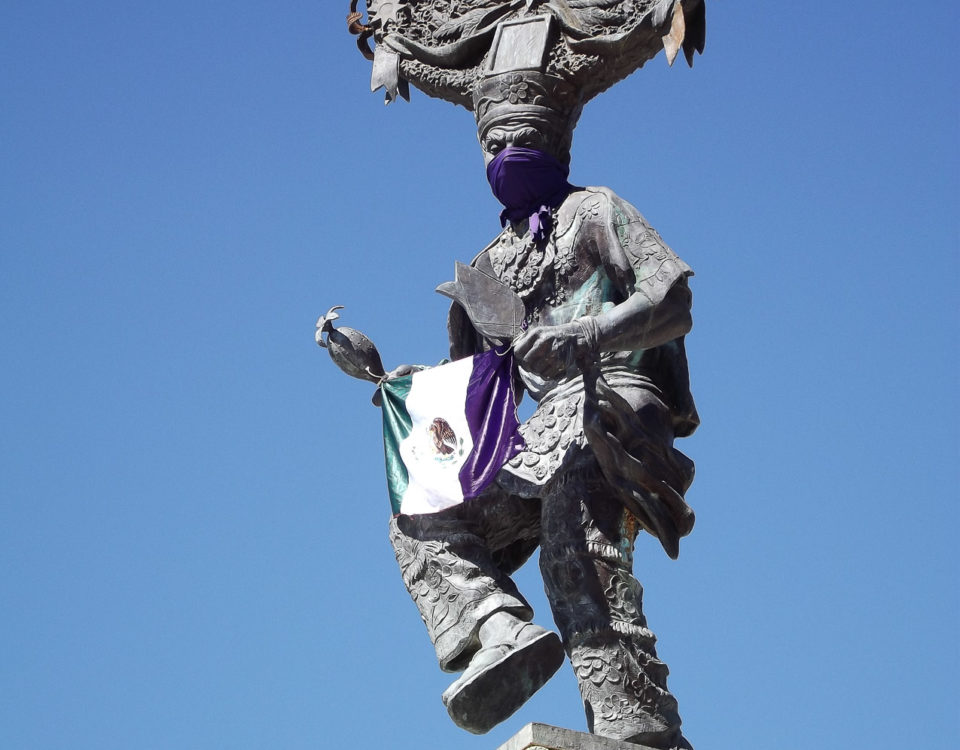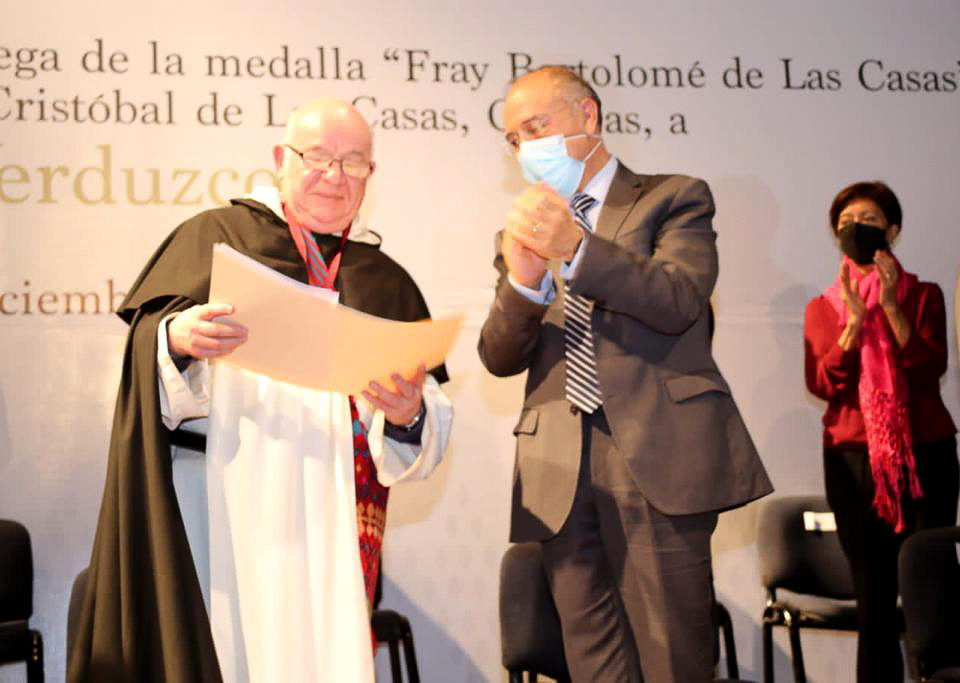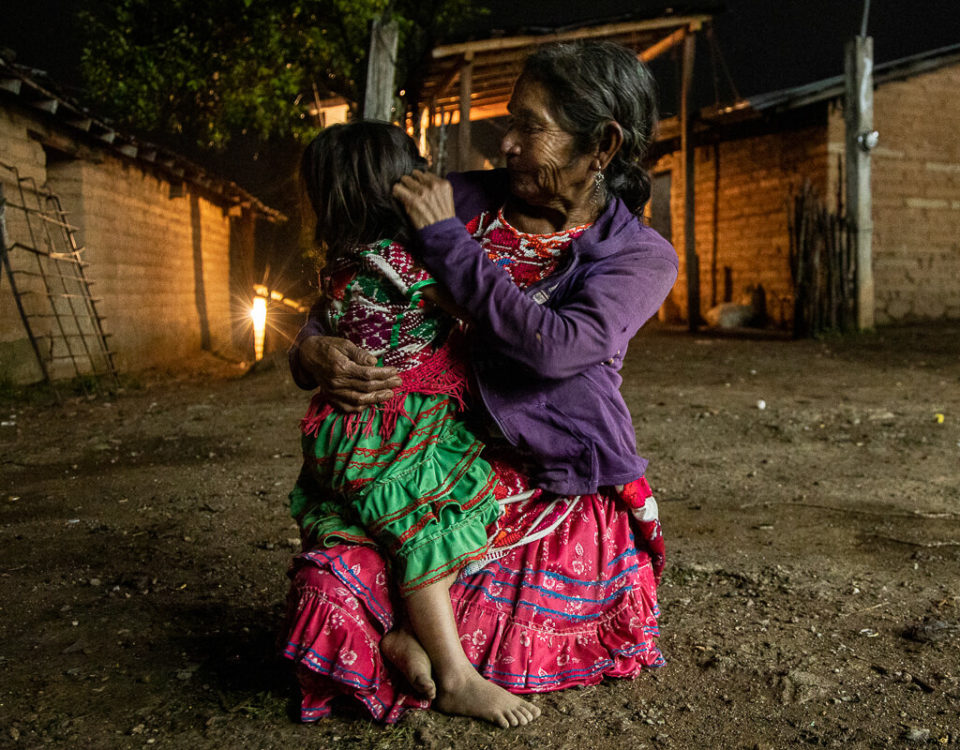2021
17/01/2022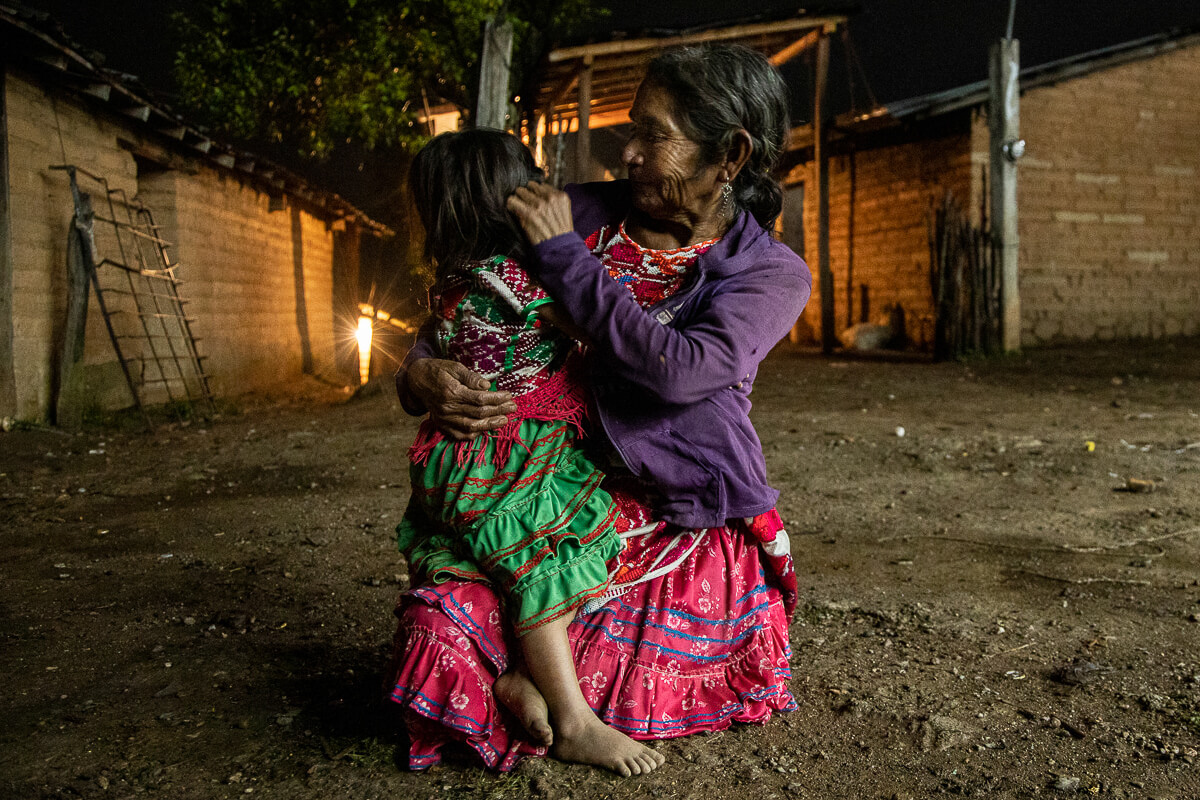
FOCUS: Guerrero, Gaping Wound
03/03/2022
T en years after the entry into force of the Law for the Protection of Human Rights Defenders and Journalists, in January, the Ministry of the Interior began work to reform it.
“It is time to stop along the way and reflect deeply to face a criminal phenomenon that unfortunately, despite the actions that the Mexican State has undertaken over these ten years, has not been able to reverse”, said the undersecretary of Human Rights, Population and Migration, Alejandro Encinas Rodriguez. “Currently the federal system that we have has allowed local authorities to disregard their responsibilities”, he stated. Despite the current law of 2012, attacks against journalists and human rights defenders continue: as of April 2021, there were 1,848 people with protection measures. More than 90% of the cases of aggression against them remain unpunished, the Government indicated.
Five journalists were murdered at the start of 2022 alone. In January, in approximately 47 cities throughout Mexico, thousands of people took to the streets to demand justice and an end to violence against journalists. According to data from Article 19, 28 of the 142 murdered journalists registered since 2000 were killed during the term of office of Andres Manuel Lopez Obrador (AMLO).
According to the annual balance of Reporters Without Borders (RSF), for the third consecutive year, Mexico is the country where most journalists were killed with a total of seven in 2021, which brings the number of victims to 47 in the last five years. According to the report, the total impunity enjoyed by the material and intellectual authors explains the persistence of the violence. RSF noted that AMLO “has failed to improve the situation.”
In February, the Special Rapporteur for Freedom of Expression of the Inter-American Commission on Human Rights (IACHR), Pedro Vaca Villarreal, urged the Mexican government to recognize the “crisis” of violence that journalism is going through in Mexico. He also urged it to suspend the controversial spot “Who’s Who of Lies”, which is presented every Wednesday at the president’s morning conferences. This is because “it sends confusing messages about the government’s intention to guarantee freedom of the press” and it is a “spot totally foreign to democratic standards of freedom of expression.” The IACHR rapporteur deplored the fact that, instead of outright condemning the attacks against the press, several of his statements can be understood “by society as a way of diminishing the relevance of the problem.”
Megaprojects Declared “of Public Interest and National Security” – Possible Exacerbation of Risk for Environmental Defenders
In November, a presidential agreement was published in the Official Gazette of the Federation declaring “of public interest and national security” the federal government works for communications, telecommunications, customs, railways, borders, hydraulics, water, matters of the environment, tourism, health, energy, ports and airports. Also those that, due to their complexity, object, characteristics, nature and magnitude, are considered priority or strategic for national development.
This agreement has triggered severe criticism. Experts, civil organizations, former ministers of the Supreme Court of Justice of the Nation have agreed that AMLO exceeded his powers, since he cannot modify the limits set by current legislation. In this sense, they affirm that the Agreement is unconstitutional and violates human rights, given that it not only promotes opacity, by making it possible for information about the works to be declared confidential, but also legally disarms the citizens who protect themselves against them.
In contrast, the general director of the Tehuantepec Isthmus Interoceanic Corridor, Rafael Marin, commented that the Agreement will not only facilitate the reduction of procedures and times that impede the progress of the works, but will also guarantee the rapid intervention of the authority to contain possible roadblocks. For the former president of the Caribbean Business Coordinating Council (CCEC), Francisco Cordova, “it is a desperate measure”, to give way to projects that, due to their magnitude, scope and cost, exceed six years of construction.
The National Indigenous Congress (CNI) spoke out against this policy that “legalizes dispossession with the public force to install megaprojects.” In January, it reported that it obtained from a federal judge the provisional suspension of the presidential agreement in response to 17 appeals filed by indigenous peoples and communities from Jalisco, Queretaro, Puebla, Morelos, Veracruz, Oaxaca, Campeche, Quintana Roo, Yucatan and CDMX, all from members of the CNI.
The concern on the part of civil organizations is heightened by the militarization not only of public security, but also of all areas of society. In February, AMLO announced the creation of a military company called “Olmeca, Maya Mexica”, which will be in charge of managing the Maya Train and the new airports in Santa Lucia, Tulum, Chetumal and Palenque. “It is going to allocate 75% of its profits for the retirements (…) of members of the armed forces”, he declared. He repeatedly thanked the support of the Armed Forces not only in large works (including the construction of the National Guard barracks and the branches of the Welfare Bank) but also in dealing with the pandemic. “We are working for the development of Mexico and we are doing it thanks to the collaboration of the armed forces, without rhetoric, without demagoguery, (I tell you) it would have been very difficult to face the health crisis, the economy, without the support of the secretariats of Defense and Navy, two pillars of the National State”, he added.
CHIAPAS: Violence Becoming More Frequent
In January, a pilgrimage of the Believing People was carried out as part of the celebrations for the 11th anniversary of Bishop Jtatic Samuel Ruiz Garcia’s anniversary, which was attended by more than 3,000 people. A statement was read through which they gave an account of the context that exists in their communities, “especially the insecurity, violence and territorial dispute caused by organized crime, before which the authorities of the three levels of government are overwhelmed, permissive and collusive. (…) The disappearance of people, girls, boys, men and women, of different ages, has been more evident in this last year. And because of the fear of reprisals and the non-exercise of the rule of law, people do not file complaints. (…) Also the threat and assassination of social leaders and social communicators, as well as threats to Pastoral Agents.” It also denounced militarization, impunity and migrant trafficking, among others, and reaffirmed their commitment to defending the land and territory.
The area of Los Altos is one of the regions where the worsening of violence has been most noticeable. In December, the Fray Bartolome de Las Casas Human Rights Center reported that the Inter-American Commission on Human Rights (IACHR) asked the Mexican State to be able to “carry out an on-site visit in order to learn about the situation of the Precautionary Measures implemented in the municipalities of Aldama, Chalchihuitan and Chenalho.” This, considering that “the risk factors that endanger the safety and life of the inhabitants of 22 indigenous communities of Chiapas remain”: nine neighboring communities of the municipality of Chalchihuitan and one of Chenalho; and 12 communities in the municipality of Aldama adjoining the Santa Martha community in the municipality of Chenalho. Frayba explained that “the IACHR has shown that to date the ministerial investigations do not have elements that indicate that the disarmament and dismantling of the people belonging to the armed groups that operate in the affected areas has been achieved, despite the actions implemented, such as the arms exchange program and intelligence activities.”
Likewise, in December, the State Congress unanimously approved the request for a license from the members of the Pantelho city council after the removal, in October, of the president-elect Raquel Trujillo Morales, at the request of the State Attorney General’s Office, which accuses him of the crime of homicide. Pedro Cortes Lopez was elected president of the municipal council through the system of uses and customs in August after the irruption of the group, which defines itself as “El Machete People’s Self-Defense Forces.” He theoretically concluded his functions on September 30th, but he continued to govern de facto, because they did not want to let Raquel Trujillo Morales or his council to enter by linking him to organized crime.
In February, the National Search Commission entered Pantelho to search for 21 people who disappeared after the popular uprising for greater security in July 2021. They were retained and exhibited in July, when more than 2,000 residents of the 86 indigenous communities and the 18 neighborhoods of Pantelho seized the mayor’s office. The families of the 21 people the commission is trying to accuse El Machete of having kidnapped and disappeared them. “They say that El Machete murdered the 21. We don’t have them, we didn’t see them. The Search Commission may come, to look for them under the stones”, replied the leader of the group. “We also have family members who have disappeared years ago”, he said, asking the authorities to search not just for the 21, but for the more than 200 who had previously disappeared.
Another hot spot has been Oxchuc. In December, the plebiscite by uses and customs took place to elect the new president of this municipality. Disagreement with the results has given rise to various situations of violence, including road blockades and house burnings, among others. It should be remembered that special elections are being prepared in six municipalities in which the last June elections were not concluded due to violent acts and lack of safe conditions. For the same reason, people fear that a climate of insecurity will be unleashed due to the dispute over political power “where communities are hostage to the lack of agreements, insecurity and roadblocks”, mentions El Heraldo de Chiapas.
Within the framework of the International Day for the Elimination of Violence Against Women, several activities were carried out in November in which the lack of attention by the Chiapas Justice System to femicides was denounced. Chiapas is among the states of Mexico with the most femicides: “The year 2021 counts with 176 cases until the end of October, of which 61 are underpinned as consummated femicides”, reported The Feminist Observatory of Chiapas. 574 disappearances of children and adolescents were also registered in 2021, where girls and adolescent women represent 72% of the total.
The situation of migrants is another expression of the growing violence. December was marked by a terrible accident that left at least 53 dead and more than 50 injured, all of them migrants from Central America. It happened on the Chiapa de Corzo-Tuxtla Gutierrez road section when the driver of a trailer in which more than 100 people were traveling lost control while driving at excessive speed. The United Nations High Commissioner for Refugees, Mexico Section, stated that “immigration alternatives and legal channels are required to avoid tragedies like this one.” Foreign Minister Marcelo Ebrard announced the creation of an action group against the network of human traffickers involved. Subsequently, more than 40 human rights organizations from Mexico and Central America denounced that this type of situation is due to “the adoption of failed migration policies” and that “the overcrowding in which they traveled shows the adversities faced by [migrants].” They condemned the fact that the Mexican government has accepted the US program adopted by Trump in 2018 and taken up by Joe Biden “Stay in Mexico”, as it pushes people to seek increasingly dangerous routes.
OAXACA: Situation of Vulnerability of Defenders and Reporters Reflects National Context
In January, a group of four heavily armed men broke into the home of human rights defender Rogelia Gonzalez Luis in the municipality of Juchitan de Zaragoza, Tehuantepec Isthmus. They burned his computer equipment and documents, in addition to looting her house. Rogelia is the founder of the March 8 women’s group, the Istmeña Women’s Care Center (CAMI) and the “China Yodo” Refuge House. The Human Rights Ombudsman of the People of Oaxaca (DDHPO) demanded that the authorities guarantee her physical integrity, as well as that of the people close to her. He underlined that, from January 2018 to December 2021, he initiated 61 files for attacks against defenders, the most recurrent being threats, arbitrary arrests and cruel and inhuman treatment.
In February, community defender Edgar Martin Regalado, a member of the Collective in Defense of Human Rights and Communal Assets of Union Hidalgo, was the victim of an attack. He luckily escaped unharmed. The aggression was recorded just hours after his participation in a press conference in the city of Oaxaca, “where he positioned the actions undertaken by said group (…) against the construction and operation of the Gunaa Sicaru wind farm by the company Electricite de France (EDF)”, alerted the organizations that accompany the community.
The worsening of the situation of the press throughout Mexico is also observed in Oaxaca. In January, journalist Jose Ignacio Santiago Martinez, founder and director of Pluma Digital Noticias in the Mixteca, was shot at. In February, journalist Heber Lopez Vasquez was murdered in Salina Cruz, he was director of the “Noticias Web” site and had received death threats in 2019; he wrote regularly about politics and corruption. Oaxaca is considered the second deadliest state in the country to practice journalism, with ten journalists murdered in the state since 2013, according to Article 19.
Among the most vulnerable defenders are those who organize to defend their land and territory. In December, the organization Servicios del Pueblo Mixe A.C. denounced the increase in threats against indigenous territories due to the imposition of megaprojects without consulting or obtaining the consent of the peoples. It affirmed that the interest of the transnationals and the State itself has grown to take over the territories of social property, which generates risks for those who defend the territory, especially because the federal government relies on legal reforms to impose them.
Likewise, in December, the Oaxacan Assembly in Defense of Land and Territory held a press conference “IT IS NOT DEVELOPMENT, IT IS DISPOSSESSION! Indigenous People, Megaprojects and Criminalization in Oaxaca”. It spoke out against the installation of megaprojects in Oaxacan territory due to the “serious environmental, social, and political consequences that it brings to the communities that live there.” It denounced the problems in the Tehuantepec Isthmus due to the pretense of carrying out megaprojects in indigenous territories without information or consultation. It also denounced the constant violations of the rights of defenders of their land and territory.
Finally, within the framework of the International Day for the Elimination of Violence against Women, the Memory to Resist “Neither Forgive nor Forget” protest day was held in the Oaxacan capital to denounce the cases of femicidal violence that, during the current six-year term of office, has claimed the lives of more than 500 women and girls. They pointed to the state government for “its inaction against gender violence and the ineffectiveness of the gender alert issued in 40 municipalities, but implemented through simulation.”
GUERRERO: Continued Violence Despite Change of Government
In January, La Montaña Tlachinollan Human Rights Center spoke of the situation in which many sectors of the population of Guerrero find themselves 100 days after the new government of Evelyn Salgado Pineda (of the ruling party, the Regeneration Movement, MORENA) where “there is no hue or color of change.” The lack of attention from state and municipal authorities to combat the growing violence in the state, the ravages of the pandemic and the collapse of the family economy has them “on the edge of survival”, it said. Despite the high expectations generated by Salgado Pineda’s victory, the lack of results has begun to materialize in the anger of certain sectors through roadblocks, marches and protests. Contrary to prompt and satisfactory answers, the bureaucracy continues, the institutions drag out the vices of corruption, continue with the practices of contempt and indifference to the population, the lack of dignified and truthful attention, affirmed the Center. On the other hand, it added that the diagnosis reveals the collusion of local powers with criminal organizations where governability “depends on the pacts signed by the mayors with the turf bosses.”
For these dates, the continuity of the repression also began to be pointed out. In January, more than 800 members of the National Guard and Guerrero State Police arrived at the Palo Blanco toll booth “to prevent the fathers and mothers of the 43 disappeared and students from the Ayotzinapa Normal Rural School from protesting there.” Tlachinollan reported. For the Committee of Fathers and Mothers of the 43, this action by the government violates their rights to freedom of expression and demonstration. “There are no solid grounds to prevent the mothers and fathers of the 43 from protesting, no harm is caused to third parties, (…), the lives of people are not put at risk nor is violence generated with our act of protest, why? what then to cancel and restrict these prerogatives?” “(The) government is not interested in establishing order or avoiding violence, its objective is to prevent social protest, undermine popular organization and destroy freedom of assembly”, they denounced. Faced with the attempt to disperse the movement, the National Human Rights Commission (CNDH) asked the Federal Government and Governor Evelyn Salgado Pineda “to refrain from incurring in actions that could put the physical integrity of the relatives of the 43 disappeared students at risk.” . (…) and consequently guarantee their right to peaceful demonstration.”
In February, students from the Normal Rural de Ayotzinapa tried to take over the same booth in Palo Blanco again to demand that their 43 disappeared classmates be found alive. However, they were kettled by the police. The balance was two injured students and five more detainees -all released hours later-; The Committee of Fathers and Mothers of the 43 lamented the violent response of the armed forces who “in an unjustified and unnecessary action” and condemned the continuity in the repressive practice against social movements. Tlachinollan lamented that the current governor “has not fostered a meeting with the young student teachers”, assuring that “dialogue has been conspicuous by its absence in Guerrero”, despite the commissions that have been integrated with groups and movements together with the president of the Republic to deal with the serious situation of forced disappearance.
AMLO, for his part, affirmed that members of organized crime could be infiltrated in the leadership of the Ayotzinapa student movement, for which he called on the students “not to be manipulated” either by organized crime, “or for the other white-collar crime.” “I hope that they drop that attitude and that they do not play the game of the right (…) You can fight for principles and ideals, without violence,” he exhorted.
Subsequently, within the framework of the 50th anniversary of the assassination of the guerrilla Genaro Vazquez Rojas, thousands of people, including mothers and fathers of the 43 students, displaced indigenous families, and supportive people, mobilized to demand an end to violence and impunity, among others. Under the surveillance of the National Guard and the state police, the demonstrators, carrying posters of photographs of missing persons and murdered social activists, advanced through the streets of Chilpancingo, the state capital. They denounced the lack of justice in the state and that “the authorities and the current government of Guerrero do not have a specific agenda to face the serious problems in the state.” Vidulfo Rosales, a lawyer from Tlachinollan, also announced that Guerrero is “a state with gaping wounds from the dirty war, with 99 percent impunity. There are 5,300 missing persons and more than 30 defenders and journalists murdered from 1996 to date.”

